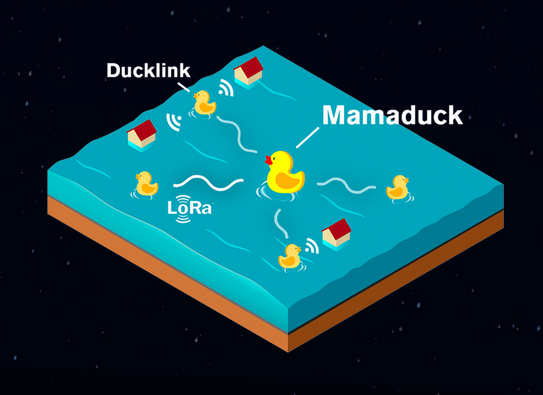| Linux Foundation Hosts Project OWL |
| Written by Kay Ewbank | |||
| Thursday, 14 May 2020 | |||
|
The Linux Foundation has announced that it will host Project OWL’s IoT device firmware effort and is inviting developers worldwide to build mesh network nodes for global emergency communications networks. Project OWL was the winner of the Call for Code 2018. It's a cloud-based analytics tool for disaster response. The name OWL is based on its remit to facilitate Organization, Whereabouts, and Logistics for disaster response. Call for Code started in 2018 and aims to bring together developers to create practical, effective, and high-quality applications based on cloud, data, and artificial intelligence that can have an immediate and lasting impact on humanitarian issues.
Project OWL aims to provide a solution to the problem that communications networks are often knocked offline in disasters, and if the infrastructure is badly damaged it takes a long time to repair. Instead, Project OWL is based on simple wireless devices that establish networks on the ground along with software to use it. The wireless devices make up a mesh network. Each device is an Internet of Things (IoT) device called a “DuckLink”, and the mesh network can be deployed in disaster areas to reestablish connectivity and improve communication between first responders and civilians in need. A central portal connects to solar- and battery-powered water resistant DuckLinks, generating a Local Area Network using a Wi-Fi captive portal powered by low frequency Long-range Radio (LoRa) connectivity.
The open source release of OWL’s firmware can quickly turn a cheap wireless device into a DuckLink that acts as a mesh network node that can connect to any other Ducks physically around it. This release is described as marking a significant milestone putting the ClusterDuck Protocol into the hands of global developers. You have to want to work on a project that uses the ClusterDuck Protocol! The creators of Project OWL hope the move to the Linux Foundation will accelerate the development of the mesh networks, and will encourage a global network of developers to work on mesh networks. Bryan Knouse, Co-Founder of Project OWL, said: "We want to challenge developers to build mesh network nodes for global emergency communications networks leveraging our newly open-sourced IoT firmware.” Since winning Call for Code in 2018, Project Owl has been worked on by IBM Code and Response, a $25 million, four-year deployment initiative to put open source technologies into communities. In March 2019, Project OWL and IBM set up a large-scale pilot in Puerto Rico, deploying over 63 ducks each covering two square miles. OWL currently has 30 permanent, solar-powered devices deployed across Puerto Rico in areas that are vulnerable to earthquakes, flooding, fire or other weather conditions.
More InformationRelated ArticlesAndroid Gets A Peer-to-peer Network API Linux Foundation Launches Reactive Foundation Linux Foundation Launches Red Team Project Why The Internet Of Things Has A Problem
To be informed about new articles on I Programmer, sign up for our weekly newsletter, subscribe to the RSS feed and follow us on Facebook or Linkedin.
Comments
or email your comment to: comments@i-programmer.info |
|||
| Last Updated ( Thursday, 14 May 2020 ) |



